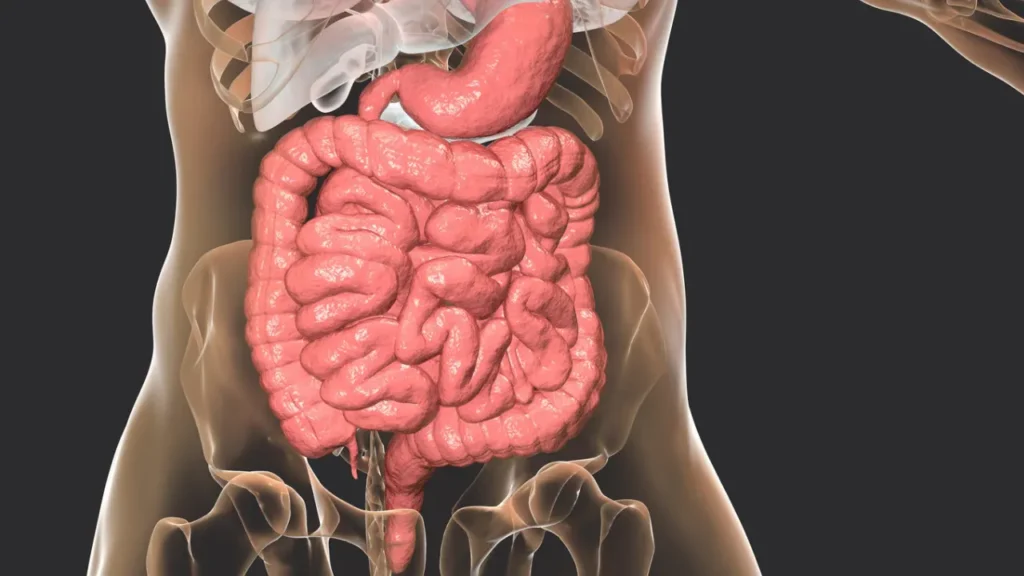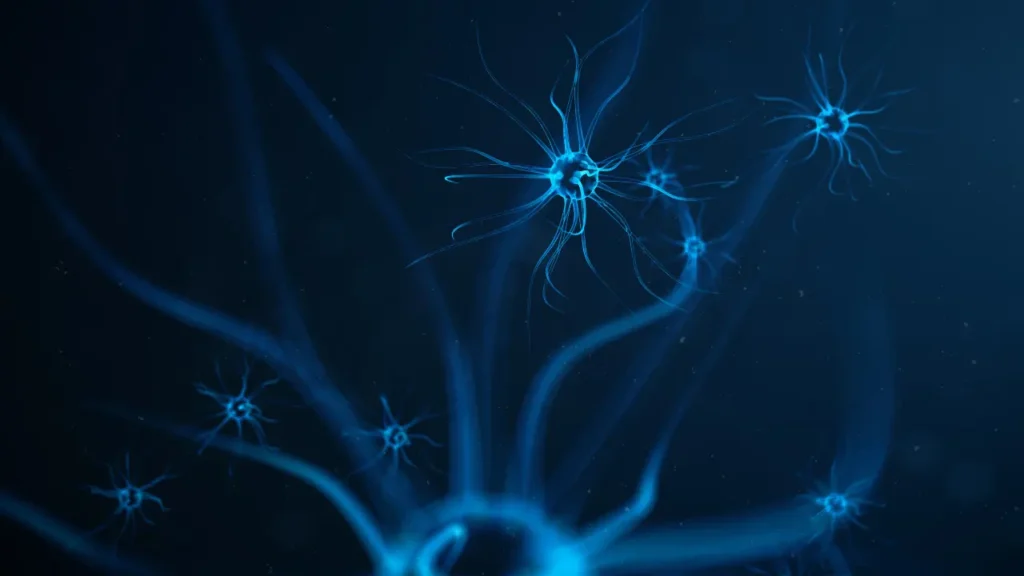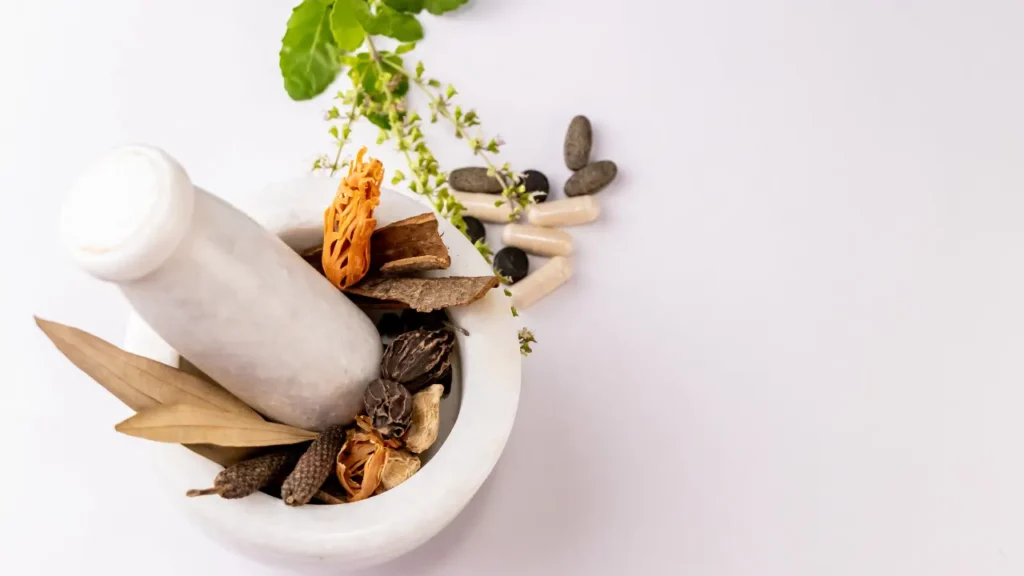The plant genus Salacia, which has long been used in Ayurvedic medicine, has drawn interest in the modern day due to its possible usage as a nootropic supplement. These South Asian natural herbs, which are descended from species like Salacia reticulata and Salacia oblonga, have long been used to treat diabetes, obesity, and a host of other digestive issues. Salacia’s bioactive components have been studied recently, and the results indicate that they may help improve focus, alertness, and cognitive function. The nature of salacia, its health advantages, the recommended dosage, any side effects, any drug interactions, and safe usage guidelines for this nootropic supplement are all covered in detail in this academic study.
You May Also Like:
Belladonna: Benefits, Dosage, Side Effects, Drug Interactions, And Other Important Information
AUTUMN CROCUS: Benefits, Dosage, Side Effects, Drug Interactions, And Other Important Information
Salacia: Benefits, Dosage, Side Effects, Drug Interactions, and Other Important Information is an original (NootropicsPlanet) article.
Nature of Salacia
Plants in the genus Salacia, valued in Ayurvedic medicine, include Salacia reticulata and Salacia oblonga. These plants, native to South Asia, have long been used to treat digestive problems, diabetes, and obesity. Salacia’s medicinal qualities are ascribed to bioactive substances such as mangiferin, kotalanol, and salacinol. Salacia has several biological activities, such as α-glucosidase inhibition and antioxidant properties, which support its potential as a nootropic supplement and its health advantages.
Health Benefits of Salacia
Glycemic Control: Salacia’s ability to inhibit α-glucosidase—an enzyme responsible for breaking down carbohydrates—makes it effective in managing blood glucose levels. This action helps prevent sudden spikes in blood sugar, supporting overall metabolic health and reducing the risk of type 2 diabetes.
Antioxidant Properties: Salacia’s compounds, particularly mangiferin, possess potent antioxidant properties. They combat oxidative stress, a condition implicated in the development of chronic diseases, including heart disease, diabetes, and neurodegenerative disorders. Salacia can protect cells from damage by neutralizing free radicals, promoting overall health and longevity.
Anti-inflammatory Effects: Salacia exhibits anti-inflammatory activities, which are beneficial in managing conditions characterized by chronic inflammation, such as arthritis, cardiovascular diseases, and certain forms of cancer. Reducing inflammation can also protect against cognitive decline and improve brain health.
Weight Management: Traditional use and some modern studies suggest that Salacia can aid weight management. Modulating the digestion and absorption of carbohydrates may help reduce body weight and prevent obesity, a significant risk factor for numerous health conditions.
Cognitive Enhancement: Emerging evidence points to Salacia’s potential in enhancing cognitive functions such as memory, focus, and alertness. Its ability to ensure a steady glucose supply to the brain is essential for maintaining mental energy and performance. The antioxidant and anti-inflammatory properties may also protect against cognitive decline and improve brain health.
Digestive Health: Salacia has been used traditionally to improve digestive health. Its effects on slowing carbohydrate absorption can also alleviate symptoms associated with digestive disorders, such as bloating and gas, promoting overall gastrointestinal well-being.

Chemistry of Salacia
Among the bioactive substances found in Salacia are mangiferin, kotalanol, and salacinol. Strong α-glucosidase inhibitors, such as salicylic acid and kotalanol, are essential to its anti-diabetic effects. By competitively blocking the enzymes responsible for breaking down carbs, these chemicals imitate the structure of glucose and slow down the intestinal absorption of glucose. Salacia contains a xanthone glycoside called mangiferin, which has neuroprotective, anti-inflammatory, and antioxidant properties. Salacia has a wide range of therapeutic uses, some of which are nootropic due to its distinct chemical makeup.
Physiological Mechanisms of Action
Salacia has various effects on the body and brain. It slows down the breakdown of carbohydrates by blocking α-glucosidase, which causes blood glucose levels to rise more gradually. This process helps control blood sugar levels and may also impact cognitive processes by supplying the brain with glucose, an essential fuel for neuronal activity.
Additionally, the antioxidant qualities of substances like mangiferin found in Salacia can lessen the effects of oxidative stress on the brain, which may enhance neuroprotection and cognitive performance. The pathophysiology of neurodegenerative disorders and cognitive decline is linked to oxidative stress. As a result, the antioxidant properties of Salacia may provide defense against various ailments.

Optimal Dosage of Salacia
The best way to take Salacia for nootropic effects depends several factors, including age, health, and use of other medications, as well as the scientific data that is now available. Salacia’s anti-diabetic benefits have been the main focus of clinical trials; dosages of 100–500 mg of Salacia extract per day have been shown to be effective in enhancing glycemic control.
The dosage for nootropic purposes can change depending on the particular species of Salacia employed and the concentration of the extract. It is crucial to begin at the lower end of the recommended dosage range and work your way up depending on your tolerance and any side effects you see. When adding Salacia to a regimen for cognitive enhancement, speaking with a healthcare provider is advised.
Side Effects of Salacia
Salacia is generally safe as long as it is taken in moderation. However, because of its α-glucosidase inhibitory action, adverse symptoms such as gastrointestinal discomfort, including gas and bloating, have been noted. Due to the lack of long-term safety data, using Salacia as a nootropic supplement should be done so carefully and with knowledge.
Potential Substance Interactions with Salacia
Salacia may interact with diabetic drugs due to its effects on blood glucose levels and the digestion of carbohydrates. If hypoglycemia is not closely controlled, this could result in dangerous consequences. Furthermore, its anti-inflammatory qualities may change the effects of other anti-inflammatory medications like non-steroidal anti-inflammatory drugs (NSAIDs). It is essential to speak with medical professionals before taking Salacia with other drugs or supplements to prevent adverse interactions.

Best Responsible Uses of Salacia
The responsible use of Salacia as a nootropic supplement involves understanding its properties, potential benefits, and risks. Individuals interested in using Salacia for cognitive enhancement should:
- Consult with a Healthcare Professional: Before adding Salacia to a nootropic regimen, seeking advice from a healthcare provider is essential, especially for individuals with existing health conditions or those taking other medications.
- Start with Low Doses: Begin with the lowest effective dose of Salacia and gradually adjust based on personal tolerance and cognitive effects observed.
- Monitor for Side Effects: Be vigilant for any adverse effects, particularly gastrointestinal symptoms, and adjust the dosage accordingly.
- Consider the Source: Opt for high-quality Salacia supplements from reputable manufacturers, ensuring product purity and potency.
- Evaluate Cognitive Benefits: Keep a journal or log to monitor cognitive improvements or any changes experienced while using Salacia. This practice can help assess its effectiveness and adjust the dosage as needed.
- Be Mindful of Duration: Since long-term effects are not well-documented, it’s prudent to use Salacia cyclically or for specific periods when enhanced cognitive function is desired rather than continuously over long durations.
- Lifestyle Integration: For optimal cognitive benefits, integrate Salacia supplementation with a healthy lifestyle, including a balanced diet, regular exercise, and adequate sleep. These factors collectively contribute to cognitive health and can enhance the nootropic effects of Salacia.
Salacia:
Conclusion
Salacia is used in traditional medicine to support digestive health and alleviate gastrointestinal discomfort. Some studies suggest that it may have various health benefits, including blood sugar control, weight management, anti-inflammatory effects, antioxidant activity, and digestive health. However, more well-designed clinical trials are needed to confirm these effects and determine optimal dosages and treatment protocols. Individuals interested in using Salacia supplements should consult with a healthcare professional, especially if they have underlying health conditions or are taking medications.

References:
- Effect of Aqueous Extract of Salacia Reticulata on Aluminum Chloride Induced Cellular Changes on Cerebral Cortex of Wistar Rats. Retrieved from: https://www.ejmets.com/article/effect-of-aqueous-extract-of-salacia-reticulata-on-aluminum-chloride-induced-cellular-changes-on-11884
- An Updated Review on the Phytochemistry, Pharmacology, and Clinical Trials of Salacia oblonga. Retrieved from: https://www.ncbi.nlm.nih.gov/pmc/articles/PMC5214554/
- A subchronic oral toxicity study of Salacia reticulata extract powder in rats. Retrieved from: https://www.ncbi.nlm.nih.gov/pmc/articles/PMC5598469/
Important Note: The information contained in this article is for general informational purposes only, and should not be construed as health or medical advice, nor is it intended to diagnose, prevent, treat, or cure any disease or health condition. Before embarking on any diet, fitness regimen, or program of nutritional supplementation, it is advisable to consult your healthcare professional in order to determine its safety and probable efficacy in terms of your individual state of health.
Regarding Nutritional Supplements Or Other Non-Prescription Health Products: If any nutritional supplements or other non-prescription health products are mentioned in the foregoing article, any claims or statements made about them have not been evaluated by the U.S. Food and Drug Administration, and such nutritional supplements or other health products are not intended to diagnose, treat, cure, or prevent any disease.


